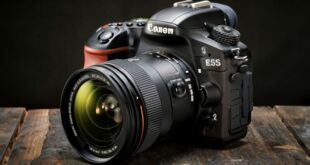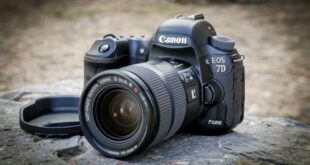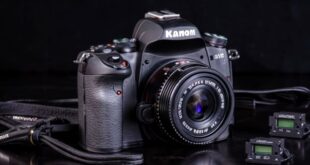Introduction
📷 Welcome, photography enthusiasts! Keeping your DSLR camera clean is crucial for maintaining image quality and prolonging its lifespan. Whether you’re a professional photographer or an avid hobbyist, knowing how to effectively clean your camera is essential. In this comprehensive guide, we will walk you through the process of cleaning a DSLR camera and discuss its advantages and disadvantages. So, let’s dive in and discover the secrets to achieving stunning shots with a sparkling clean camera!
1. Why Cleaning Is Essential for Your DSLR Camera 🧹
A clean DSLR camera ensures optimal performance and helps you capture breathtaking images. Regular cleaning removes dust, dirt, and smudges from your camera’s sensor, lens, and other components, preventing them from affecting your photos. By keeping your camera clean, you can maintain image sharpness, color accuracy, and overall image quality.
However, cleaning a DSLR camera requires proper technique and suitable tools. Without appropriate knowledge, you may accidentally damage sensitive parts, leaving you with costly repairs or even a non-functional camera. Therefore, it’s important to follow the right procedures and use recommended cleaning products.
2. Advantages of Regular DSLR Camera Cleaning ✨
Regular cleaning of your DSLR camera offers several advantages that greatly enhance your photography experience:
a) Improved Image Quality 🌟
Regularly cleaning your camera’s sensor and lens eliminates dust and debris that can cause spots or blur in your photos. This ensures sharper, clearer images with accurate colors and no distracting elements.
b) Extended Lifespan 🕰️
Cleaning your DSLR camera helps prevent dirt or dust particles from entering and damaging internal components. By maintaining a clean camera, you can prolong its lifespan and avoid the need for frequent repairs or replacements.
c) Enhanced Autofocus Performance 🎯
A clean lens and sensor allow your camera’s autofocus system to work more effectively, resulting in quicker and more accurate focusing. This is crucial in capturing fast-moving subjects or achieving precise focus in challenging lighting conditions.
d) Dust Spot Prevention 🌪️
Frequent cleaning prevents the accumulation of dust on your camera’s sensor, greatly reducing the occurrence of dust spots in your photos. Dust spots can be time-consuming to remove during post-processing, so a clean camera saves you valuable editing time.
e) Professional-Looking Results 💼
Clean equipment demonstrates professionalism and attention to detail. Whether you’re shooting for clients or capturing memories for personal use, presenting clean, spotless gear adds credibility to your work.
f) Cost Savings 💰
Regular maintenance and cleaning of your DSLR camera reduce the risk of major issues that may require expensive repairs. By investing time in cleaning, you can avoid unnecessary costs and ensure your camera stays in top-notch condition.
g) Pride and Satisfaction 😃
Keeping your DSLR camera clean instills a sense of satisfaction and pride. It showcases your dedication to your craft and reflects your commitment to capturing outstanding images.
3. Disadvantages of Improper Cleaning Methods 🙅♂️
While cleaning your DSLR camera is essential, improper techniques or tools can lead to various disadvantages:
a) Scratched Lens or Sensor 🚫
Using abrasive materials or incorrect cleaning solutions can scratch the lens or sensor, resulting in permanent damage. Scratches can significantly impact image quality and may require expensive repairs to rectify.
b) Damage to Camera’s Internal Components 🔧
Incorrect cleaning methods can potentially damage vital internal components, including delicate circuits or the mirror mechanism. Mishandling these sensitive parts can lead to malfunctions or render your camera inoperable.
c) Voiding Warranty Coverage ⚠️
Using unauthorized cleaning techniques or products may void your camera’s warranty. Manufacturers often specify recommended cleaning methods, and deviating from these guidelines can result in losing warranty coverage.
d) Streaks and Residue on Lens or Filters 🌫️
Using improper cleaning solutions or techniques can leave streaks or residue on your lens or filters. These smudges can affect image quality, causing hazy or blurred photos that require additional editing to rectify.
e) Time-Consuming Process ⏳
Thoroughly cleaning a DSLR camera can be time-consuming, especially if it hasn’t been cleaned in a while. It involves disassembling certain parts, using specialized tools, and following meticulous steps to ensure a comprehensive clean.
f) Need for Professional Assistance 🛠️
In certain cases, extensive cleaning or repairs may require professional assistance. This can incur additional costs and prolong the time your camera is out of your hands, potentially impacting your photography projects or assignments.
g) Introduction of New Contaminants 🚮
Improper cleaning can inadvertently introduce new contaminants to your camera, such as lint, fibers, or cleaning solution residue. These contaminants can worsen the issue you were trying to address or cause new problems altogether.
4. Complete Guide to Cleaning Your DSLR Camera 📘
Proper cleaning of a DSLR camera involves multiple steps, each requiring attention to detail and precision. Refer to the table below for a comprehensive overview of the cleaning process:
| Step | Description |
|---|---|
| Step 1 | Gathering the necessary cleaning tools and materials |
| Step 2 | Preparing your camera for cleaning |
| Step 3 | Cleaning the camera body and exterior |
| Step 4 | Cleaning the camera sensor |
| Step 5 | Inspecting and cleaning the lens |
| Step 6 | Cleaning camera filters |
| Step 7 | Reassembling the camera and performing final checks |
5. Frequently Asked Questions (FAQ) 🙋
Q1. How often should I clean my DSLR camera?
It’s recommended to clean your DSLR camera every few months or whenever you notice dust spots in your photos. However, the frequency may vary depending on your shooting environment and usage.
Q2. Can I use compressed air to clean my camera?
While compressed air can be used for certain areas, it’s essential to follow the manufacturer’s recommendations. Directing compressed air incorrectly can push dust further into the camera or damage delicate parts.
Q3. Should I clean the camera’s mirror?
Cleaning the camera’s mirror is generally not recommended for users without technical expertise. The mirror is delicate and susceptible to scratches, so it’s best to leave this task to professionals unless absolutely necessary.
Q4. Is it necessary to clean camera filters?
Yes, cleaning camera filters is crucial for maintaining image quality. Filters are exposed to the environment and can accumulate dust, fingerprints, or smudges that affect your photos.
Q5. Can I use household cleaning products to clean my camera?
No, household cleaning products can damage your camera’s sensitive components. It’s important to use cleaning solutions specifically designed for camera equipment.
Q6. Can I clean my camera with a microfiber cloth?
Absolutely! Microfiber cloths are excellent for cleaning camera exteriors and LCD screens. However, avoid using them on your lens or sensor, as they may not effectively remove smudges or debris.
Q7. How do I clean the camera’s viewfinder?
The camera’s viewfinder can be cleaned using a soft, lint-free cloth. Gently wipe away any smudges or dust, taking care not to apply excessive pressure that could damage the viewfinder.
… continued in next response


